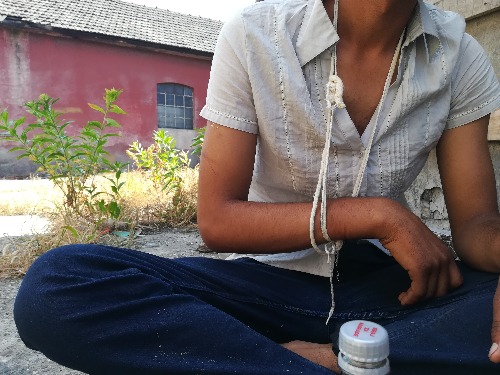On July 18th 2019, an Afghan man climbed into a truck in Turkey, in the hope of reaching Austria. As he climbed into the truck, he dislocated his shoulder and severly wounded his hand. During the trip, which lasted three days from Turkey to the Hungarian border, the man lacked access to food and water and was exposed to severe heat. When he arrived at the Hungarian border on July 20th, he was in extremely weak physical condition.
According to the respondent’s testimony, he was discovered by Hungarian border police officers at the highway border crossing point between Horgoš (Serbia) and Röszke (Hungary). The respondent said that the Hungarian police detected him because cameras filmed him through a hole in the truck’s canvas. The officers ordered him to leave the truck immediately. The respondent could not recall the exact number of police officers present at the border station or the number of police officers who interacted with him directly, but he said that he saw at least a dozen. Due to his weak physical condition, the respondent requested food, water, and emergency medical care but was denied all of them.
Instead, Hungarian police officers ordered him into the backseat of a Hungarian police vehicle identified as a Sedan (similar to a Škoda Octavia). Less than five minutes after arrival at the border post, Hungarian border police drove him back into Serbian territory. According to the man’s testimony, there was no protest by the Serbian border guards. The Hungarian officers continued driving in Serbia for approximately thirty minutes, and finally stopped in woodland described by the respondent as “jungle,” where they ordered him out of the car. Due to his disorientation and weak physical condition, the respondent was unable to pinpoint the location of the drop-off site, but given his testimony, it can be inferred that the site was South of Horgoš and East of Subotica (Serbia).
At the drop-off site, altogether eight Hungarian police officers were present with three vehicles. The respondent also encountered three Iranian men at the spot who had presumably been brought there from the Hungarian border in a seperate pushback with the other vehicles.
The Iranian men spoke to the respondent aggresively, telling him to go into a seperate direction to them, which he obeyed. The respondent struggled through the bushes for several hours until he encountered a Serbian man, whom he asked to call an ambulance for treatment of his shoulder and hand. Shortly after, an ambulance arrived and brought the respondent to a hospital in Subotica, where he received treatment for his arm and hand (see Figure 1).
After his treatment, hospital staff called the Serbian police. Serbian officers picked the respondent up at the hospital and brought him to the local police station. At the station, Serbian police officers fingerprinted the respondent and denied his repeated requests to be brought to a refugee camp. Instead they told him,
“Go away. We don’t have any space for refugees here. Go away.”
The Serbian officers proceeded to kick him in the legs, pushing him out of the police station. Desperate, the respondent asked a taxi driver to take him to the nearest camp. The driver was willing to do so only for 100 Euros, which is substantially above market rate. Two camps in the vicinity of Subotica denied him entry, and he finally found a place to rest from his ordeal in an informal refugee settlement in Subotica.

